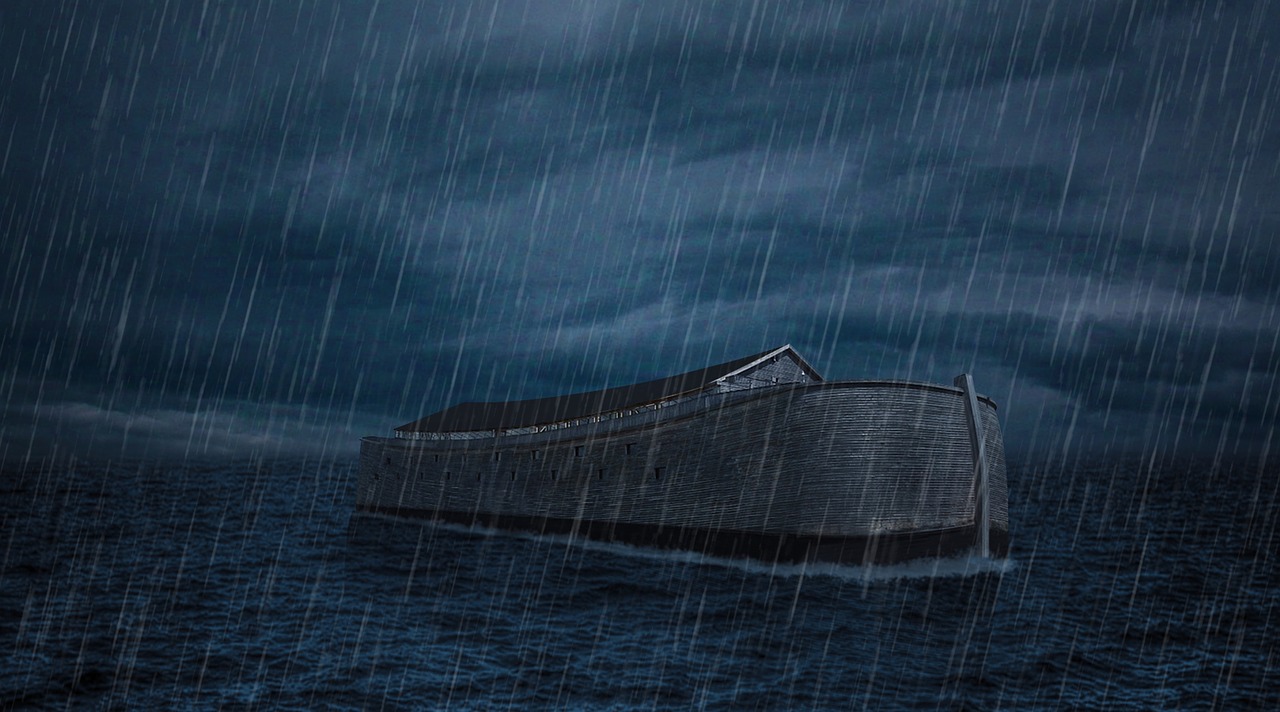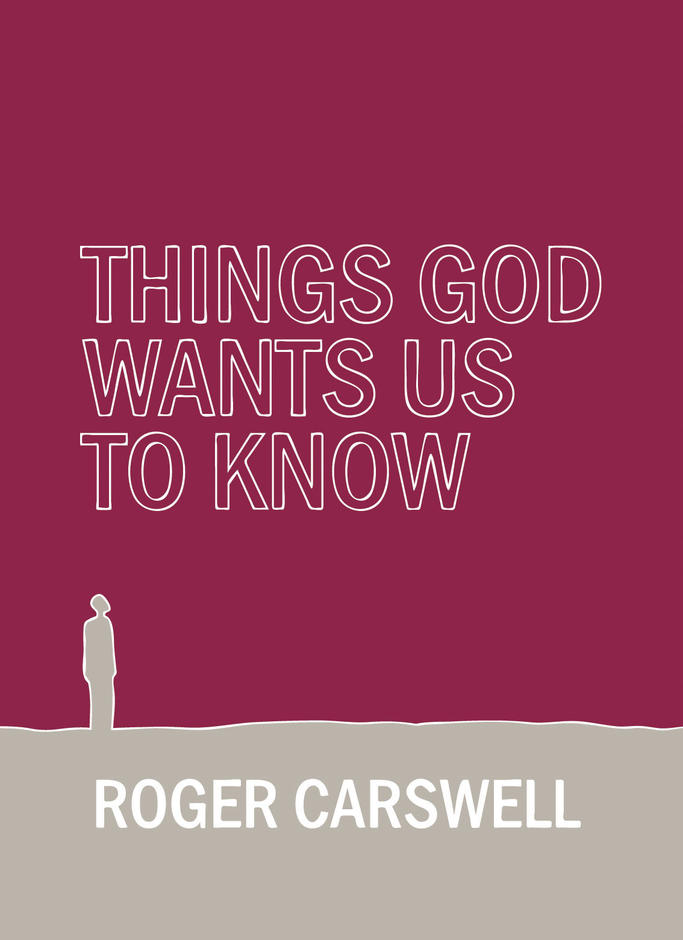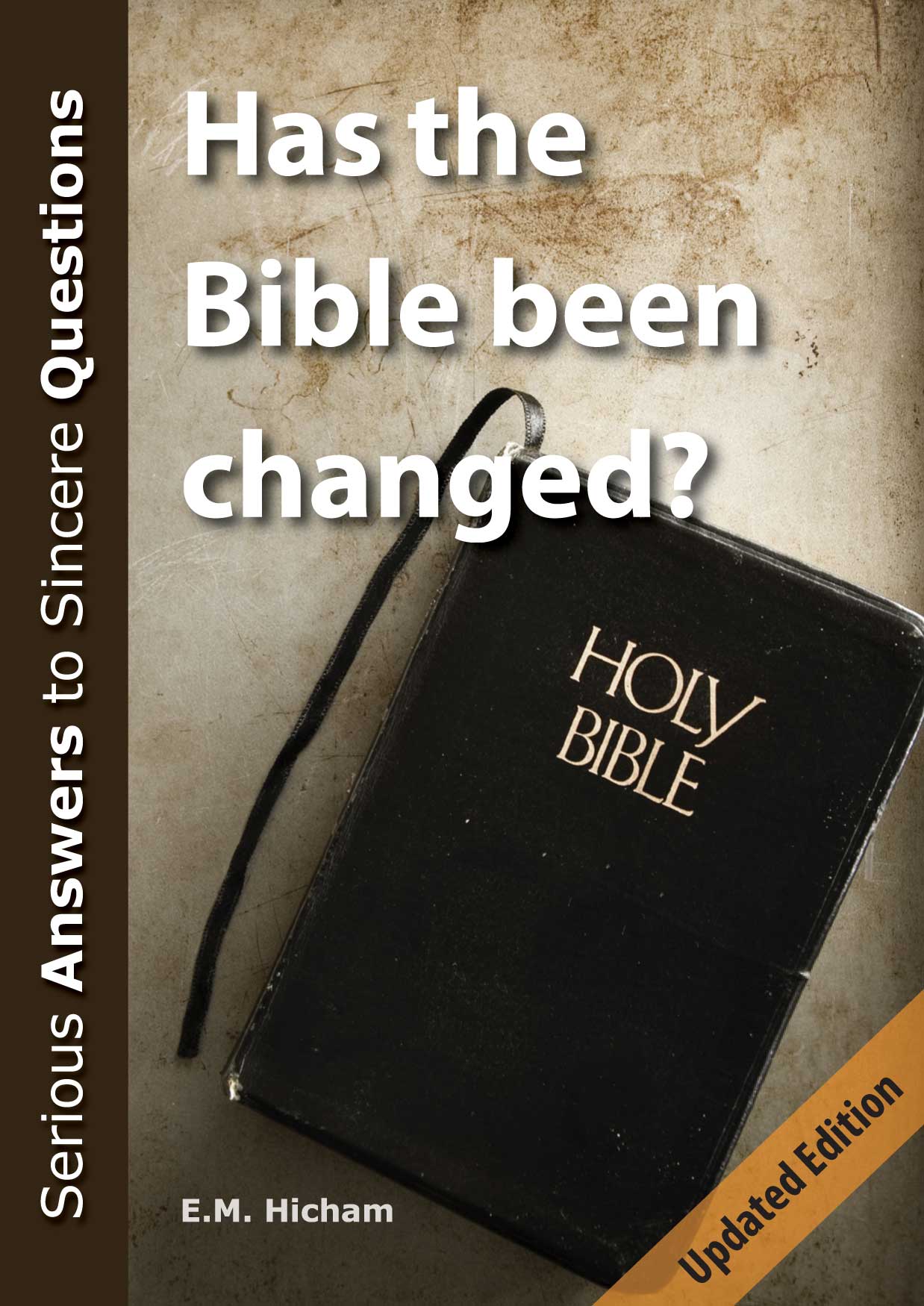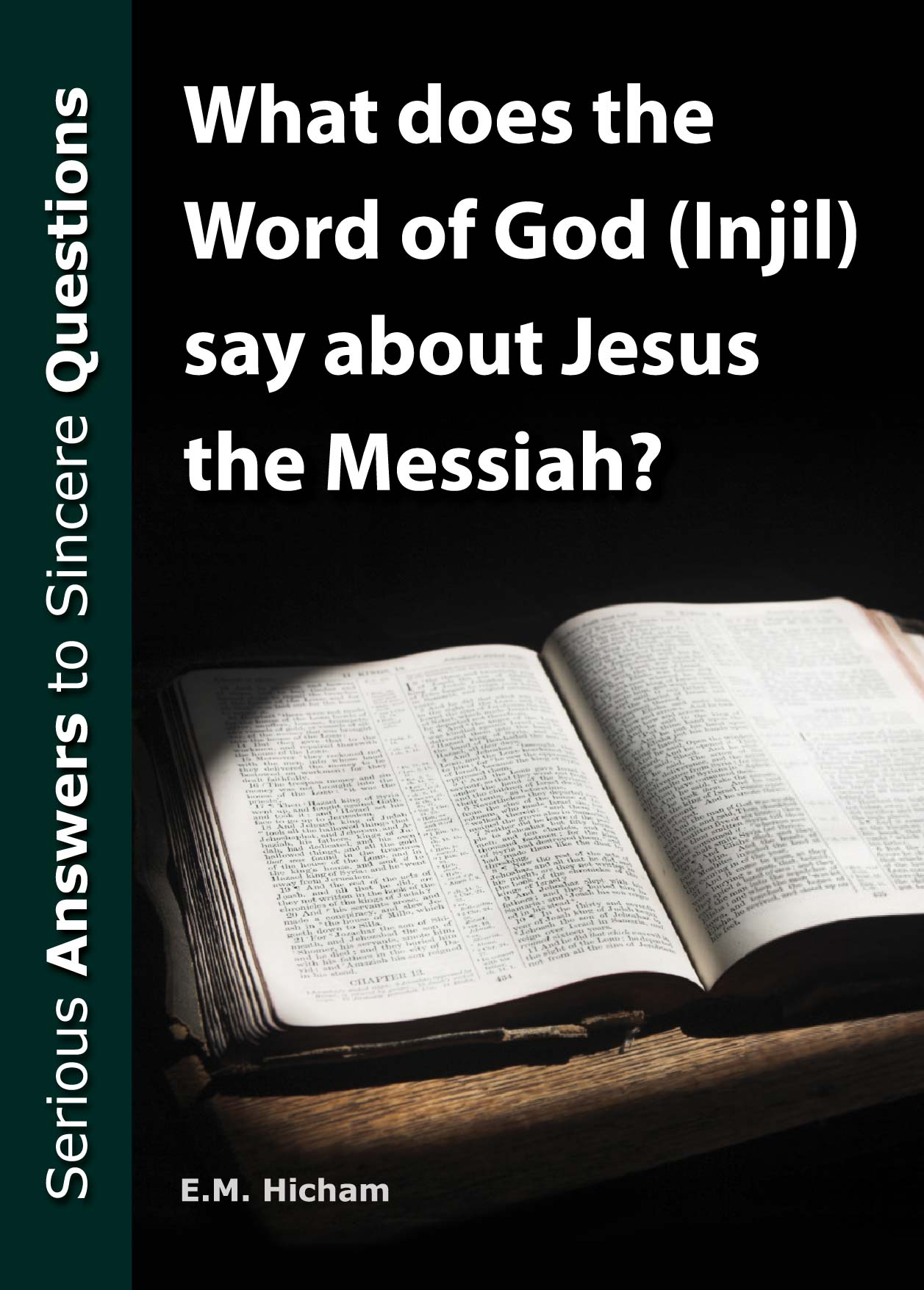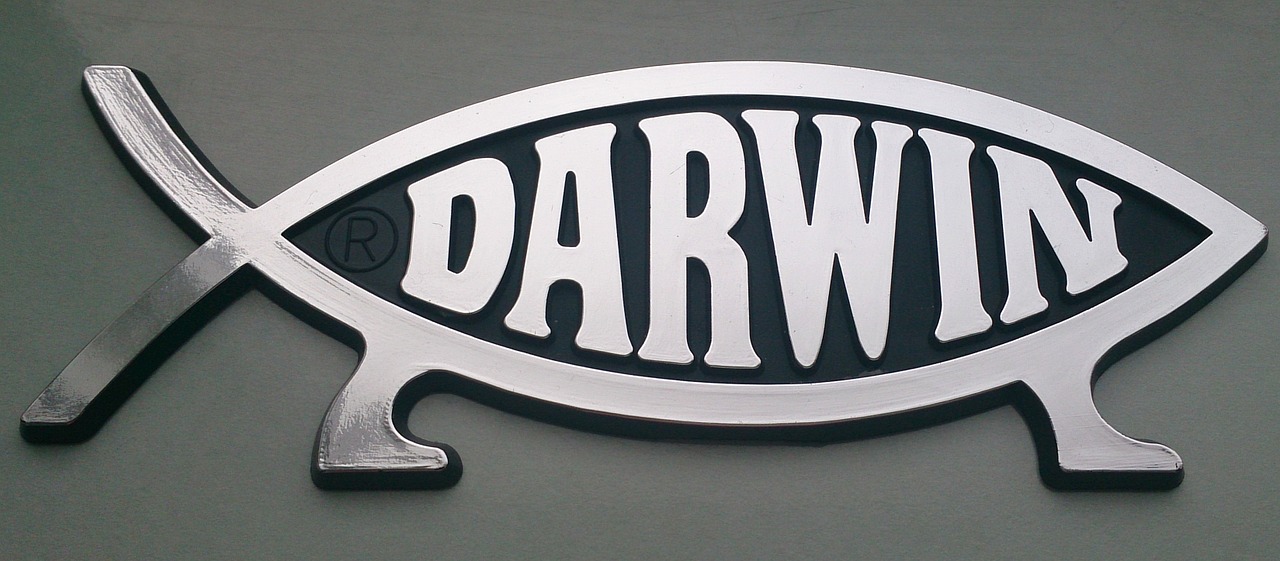Questions about suffering: 1. Why doesn’t God stop the trouble?
Why doesn’t God stop the trouble?
 Something is wrong with our world. We know too much of wars, earthquakes and famine. The world has shed too much blood and so many tears. There has been more than enough abuse, injustice, loneliness, selfishness and despair. Disease and death come as uninvited guests to wreck our comfort zones and leave us questioning. We have grown tired of false hopes and promises, whether made by politicians, doctors, bosses or lovers. Life seems so unfair. Most of us are conscious that there is a God but why doesn’t He act to stop it all? God’s message to humanity, the Bible, tells us that He is all powerful and altogether loving, so we ask why does He not intervene?
Something is wrong with our world. We know too much of wars, earthquakes and famine. The world has shed too much blood and so many tears. There has been more than enough abuse, injustice, loneliness, selfishness and despair. Disease and death come as uninvited guests to wreck our comfort zones and leave us questioning. We have grown tired of false hopes and promises, whether made by politicians, doctors, bosses or lovers. Life seems so unfair. Most of us are conscious that there is a God but why doesn’t He act to stop it all? God’s message to humanity, the Bible, tells us that He is all powerful and altogether loving, so we ask why does He not intervene?
I will answer this one big question, by answering ten more detailed questions:
1. Has the world always been a place of suffering?
We know from the Bible that when God created the world, everything was ‘very good’. There was no suffering, sin, sorrow or death. The world as it was became the world as it is, after a deliberate act of rebellion against God. At the beginning of time, the first human beings chose to discover the knowledge of both good and evil, but as a result creation was wrecked and ruined. Death and corruption entered all that God had made.
2. Does that mean that if someone is suffering they must have done something bad?
The oldest book in the Bible (which has 66 books in all) is the Book of Job. It tells the story of how Job in just a few days lost his family, wealth and health. His friends tried to explain what was happening, but didn’t know that the devil, Satan, the supreme cynic, had suggested to God that everyone has a price tag. It was Satan himself that took away from Job all that he had. At the end of the book God spoke and asked the characters of the book about sixty questions. They showed that we humans don’t understand the power, works and ways of God as we like to think we do. Job was blessed by God again, but His troubles teach that it is a mistake to have glib answers to suffering. On this occasion it was the devil who directly caused his problems.
Before there was sin, there was no suffering, and sometimes when we do wrong today there are immediate consequences. Smoke cigarettes and it will ruin your lungs; drink too much alcohol and it will wreck your liver; drive too fast and who knows what will happen? But suffering is not necessarily a direct result of sin. Jesus said about a man born blind that it wasn’t the result of his sin or his parents’ sin that there was blindness, but God would bring great good from even the disability.
On another occasion, Jesus spoke about an incident where a tower had collapsed and killed eighteen people, and a dreadful time when a group of worshippers had been martyred by Pontius Pilate. Jesus then taught that the lesson to learn is that unless we turn to God and trust Him, we also will perish. We are bound up in the bundle of life, and sadly those whom we feel should not suffer, often do. It is part of the life which we live. Just as it is inevitable that flint stones knocked together cause a spark, so it seems certain that human beings suffer.
3. Isn’t suffering pointless?
 God can bring good even from bad circumstances. He is never taken by surprise, for He knows all things: past, present and future. God is love … always! In 1911 there was a dreadful mining disaster in Durham. The then bishop, during the Memorial Service in the beautiful, packed cathedral used a tapestry to illustrate his message. Showing the reverse side there was a tangled mess of embroidery thread that seemed meaningless. Then Bishop Moule turned over the tapestry to reveal, intricately woven, the words, ‘GOD IS LOVE’. From our position life can seem deeply confusing, but God always works in love. He can bring good from even the worst situations of life.
God can bring good even from bad circumstances. He is never taken by surprise, for He knows all things: past, present and future. God is love … always! In 1911 there was a dreadful mining disaster in Durham. The then bishop, during the Memorial Service in the beautiful, packed cathedral used a tapestry to illustrate his message. Showing the reverse side there was a tangled mess of embroidery thread that seemed meaningless. Then Bishop Moule turned over the tapestry to reveal, intricately woven, the words, ‘GOD IS LOVE’. From our position life can seem deeply confusing, but God always works in love. He can bring good from even the worst situations of life.
Though we can never be glib, the suffering of some has often brought out love, compassion and care from others. A world where there was no hurt could easily become a horribly callous place.
For the people who know God in a personal way, they have the assurance that God never wastes any tears, or time, or toil, or pain. He uses everything, even suffering, in His great plan and purpose.
4. Could it be that when disasters happen, God is punishing people?
We know from the Bible that God does judge nations and people. God hates the wickedness that we so easily take for granted. It may be that suffering could bring a person or a nation to the point where they will repent, turn away from their sin, and turn back to God. It is not for human beings though, to say that such and such an incident is God’s judgement. He knows, but we do not!
5. Why did God allow Jesus to suffer?
Jesus had done no wrong at all. He was Himself God, come down to earth to live as a man, and He went about doing good. He healed the sick, raised the dead, calmed the storm at sea, fed the hungry, and turned around messed up lives. And yet people crucified Him. It is hard to imagine a worse way to die: His back was beaten, and on it He was made to carry a rough Roman cross; His naked body was nailed to the cross on which He was lifted up to die; then God laid on Him the sin of the world – all sin, from the beginning to the end of time. Jesus was cut off from His friends, and even from His Father God, as He paid the penalty for our sin.
 The Bible says: ‘All we like sheep have gone astray; we have turned every one to his own way, but the Lord has laid on Him (i.e. Jesus) the sin of us all’. ‘Jesus was wounded for our transgressions’ so that through all His suffering, God would be able to offer forgiveness to people like you and me. Jesus’ darkness gives light to those who will trust Him. He died so that we could be reconciled to God. There was no other way whereby the judgement of God against sin and the love of God for us could be satisfied.
The Bible says: ‘All we like sheep have gone astray; we have turned every one to his own way, but the Lord has laid on Him (i.e. Jesus) the sin of us all’. ‘Jesus was wounded for our transgressions’ so that through all His suffering, God would be able to offer forgiveness to people like you and me. Jesus’ darkness gives light to those who will trust Him. He died so that we could be reconciled to God. There was no other way whereby the judgement of God against sin and the love of God for us could be satisfied.
6. Will there ever be justice?
We also see from Jesus that death is not the end. He died on the cross, was buried, and then three days later rose from the dead. He had repeatedly spoken of life after death, of heaven and hell. Then He demonstrated the truth of this by rising from the dead. If this life is all that there is, so many people would have cause to be miserable. But there is more than just “three score years and ten”.
In Psalm 73, written centuries before Jesus was born, the writer found the whole issue of suffering, and the fact that ‘good’ people often suffer most, led him to question his deep faith. That was until He began to see things from God’s perspective and from eternity’s point of view. Then he saw the shortness of life compared with the length of eternity, and realised that God would eventually right the wrongs, and justice would rule in every situation.
7. Can anyone really explain why some people suffer and others seem to be spared?
As human beings, we cannot understand why some have such a tough time, but others just sail through life. But what we know about God enables us to trust, and even be thankful for the things which are beyond us. We read in the Bible, ‘The secret things belong to God, but the things revealed belong to us and to our children that we learn to obey all the works of the law’. (Deuteronomy 29 v. 29)
God has revealed so much about Himself: His love, His justice, His holiness, and His coming to earth in the Lord Jesus. He has revealed things about us too: that we are made in His image; that we are given an eternal existence; that we can come to know God in a personal way, and that God knows what He is doing in our lives.
Yet there are things we just do not understand. Why does a young child die? Why is a young mother taken? Why a tsunami? Why was it that some people and not others were killed or maimed as a result of terrorism? Why the Taliban? Why cancer? This side of eternity will never provide the answers to individual stories of suffering, but we can rest in the character of God: He has not lost control of our world.
8. Why do some people get away with great wickedness?
So much suffering in the world has been caused by tyrants, terrorists, dictators and rulers. The bloodshed and tears poured out because of armchair rulers, who seem to be unable to see the world through eyes other than their own, is heart-rending. We are assured in the Bible that every individual, including kings and queens, presidents and prime ministers, will one day stand before God in judgement. They will have to give account for all that they have said and done. Justice will be served, and those who have rejected God will mourn over all that they did.
9. Will the world always be a place of suffering?
 The Bible makes clear that the world as it is, will one day be destroyed, and God will make a new heaven and a new earth. This is described in some wonderful ways: a place where the lion will lie down with the lamb; where swords will be beaten and made into ploughs, where nations will speak peace to other nations, and there will be the sound of children playing on the streets with no fear of harm coming to them.
The Bible makes clear that the world as it is, will one day be destroyed, and God will make a new heaven and a new earth. This is described in some wonderful ways: a place where the lion will lie down with the lamb; where swords will be beaten and made into ploughs, where nations will speak peace to other nations, and there will be the sound of children playing on the streets with no fear of harm coming to them.
Not everyone will enjoy this new reign, though. For those who have rejected God’s way of forgiveness, and reconciliation to Himself, there will be a place of endless suffering. It is too horrible to contemplate. Jesus lovingly warned about the reality of hell for those who reject Him. Yet God desires that no one should perish, but that all should truly repent and believe.
10. What should be my response to suffering?
God wants us to turn from what is wrong, and ask the once crucified, but now risen Jesus to forgive us, and live within us as Lord and Saviour. He promises that He will take us through life, through death and then to be with Him forever in heaven. Heaven is not a reward; it is a gift for those who will receive Jesus into their lives.
To trust Jesus like this does not mean that there will be no more suffering. Christians find that they are swimming against the tide of the world’s thinking, and that can be hard. Nor does it mean that every question will be answered. Christians are always trying to find out more about the God they love because He first loved them and gave Himself for them. However, it does mean that we have a new relationship with the true and living God. We can rest in the certainty that He knows what He is doing even if we don’t always understand why.
Go to: Isn’t Christianity just a crutch for the weak?
Grill a Christian by Roger Carswell - request your free copy!
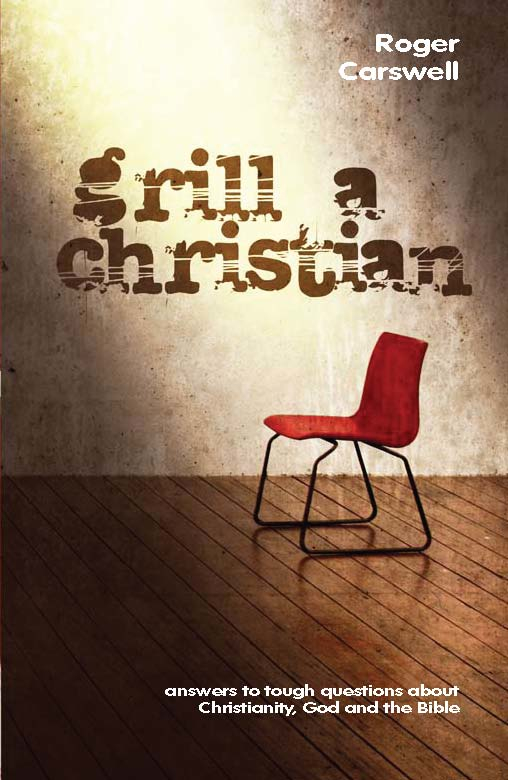
Wouldn't you just love to grab a Christian, sit them down in the hot seat and grill them mercilessly on the tough questions about God, the Bible and the world? If you have ever wished you could have your question about God answered, then this book is for you!
request now




